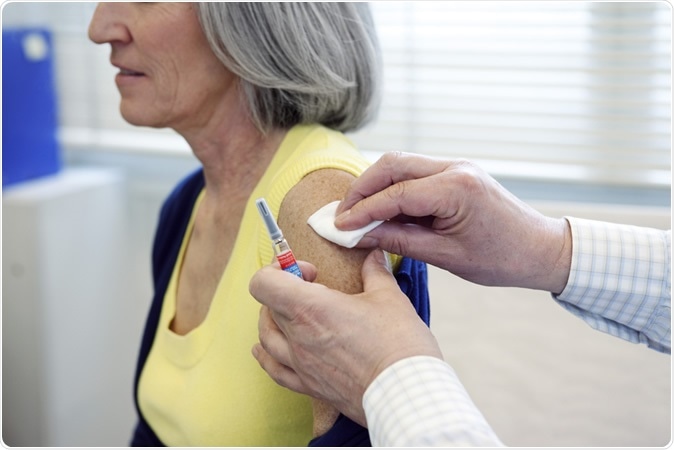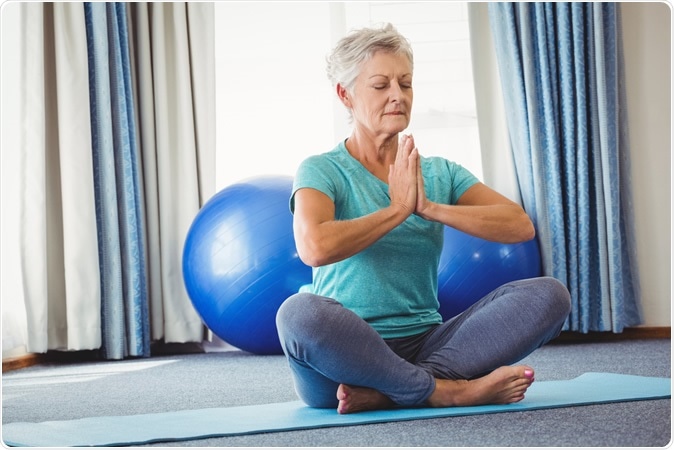As the world struggles with the coronavirus pandemic, more and more people are trying to protect themselves against the virus by all means possible. There are currently no vaccines against severe acute respiratory syndrome coronavirus 2 (SARS-CoV-2), so boosting the immune system by way of diet, regular exercise, and sleep are sensible measures.
It’s essential to realize that a good immune system isn’t necessarily going to keep the virus out of our bodies. However, it can reduce the severity. The biggest issue here is protecting the vulnerable, and that’s what public health experts are focusing on. Their recommendations include washing hands often and well, practicing social distancing, and using tissues and elbows to contain sneezes and coughs, which could spread viruses by droplet transmission.
Tackle known enemies
The medical conditions that are already plaguing many older people like diabetes, hypertension, heart disease, and lung disease predispose seniors to more severe complications following any infection. As a result, people with pre-existing health conditions should try to get them under control. The flu shot is probably a good idea in this situation, as lungs already stressed out by the flu virus are not likely to make it through an additional bout of COVID-19 very well.

Tackle known enemies. Flu shot. Image Credit: Image Point Fr / Shutterstock
Good food, healthy gut
A good place to start is diet, as according to health experts, 80% of the body’s immune system is in the gut. A healthy gut will provide a higher level of resistance. The Mediterranean diet is a healthy option with its emphasis on fresh fruits and vegetables, whole grains, fatty fish, nuts, and olive oil. The diet provides large amounts of vitamins, including vitamins A, B2, B6 and B12, C, D, and E.

The Mediterranean diet provides large amounts of vitamins, including vitamins A, B2, B6 and B12, C, D, and E. Image Credit: Liliya Kandrashevich / Shutterstock
It also provides zinc, iron, selenium, and other plant-derived minerals and antioxidants. Finally, it provides healthy fats from fish oil. Recent studies suggest that older adults on a Mediterranean-style diet who also took a vitamin D supplement of 400 IU daily had somewhat higher levels of T cells after one year, indicating a booster effect for immunity.
Processed and fried meats are a ‘no-no’, while meat altogether should be limited. Whole foods are always preferable, and a healthy dose of fermented foods, including sauerkraut, yogurt, and kefir, depending on the local culture, is also encouraged. Fiber and lentils are also foods to eat for a healthy gut microbiome.
The skin microbiome is also essential and can be encouraged to remain healthy by avoiding crisping it with ultraviolet radiation, using gentle soaps, and strong chemicals in perfumes, moisturizers, and lotions.
Stress-busters
In these difficult times, stress levels are higher than ever before, for a multitude of reasons. Stress predisposes to infection, as many studies have proven. Stress is linked to a higher production of cytokines that trigger inflammation in the body. Secondly, under stress, people pay less attention to healthy habits like getting enough sleep and eating healthy food, which has a cascading effect on immunity.
Older adults should, therefore, also incorporate stress-relieving routines into their lives, such as yoga, meditation, daily exercise, and other relaxation techniques. Exercise routines should be put in place over the long term to enhance cardiovascular fitness, no matter how slow, weak, or out of shape the individual is. This practice not only cuts down on the number of infections but promotes more rapid recovery. The increased circulation mobilizes the immune cells in hibernation in various parts of the body, which boosts the immune defenses.

Image Credit: wavebreakmedia / Shutterstock
While an occasional drink may be fine, it’s not advisable to turn to smoking, drinking, or drugs to deal with anxiety and fear. These typically impair immune function at the critical epithelial level, the layer of cells that lines the surface of all internal organs and provides front-line defense against invaders.
Support phone lines are available where people can talk to others and discuss their feelings in this situation, find new viewpoints, and make new friends - from a distance!
And if the news updates on COVID-19 upset your equilibrium, schedule a single time of day to catch up on the news and stay away from it at other times. And check only trustworthy sites.
Get your beauty sleep
Sleep is among the most potent stress-relievers known to man. It allows time for the entire body, including the busy brain, to reset and put things in order again. If there’s a lack of sleep, stress hormones like cortisol are increased, to keep the tired body awake and alert. This, however, diverts energy from the immune system.
Studies show lower levels of T cells in those who are chronically sleep-deprived, and people with less than 6 hours of sleep a night may have up to 4 times as many colds as those who have seven or more hours.
Smartphones and other mobile devices not only keep people up late at night, but the blue light they emit is also harmful to health over the long term. It’s better to switch off such devices and put a sound sleep routine in place, to alleviate anxiety and strengthen your immunity.
Supplementing your immunity
Another good strategy is to selectively enhance nutrients that may be lacking in your climate or your food. Vitamin D, for instance, is likely to be low in individuals who live in northern climates with less sunlight. For normal levels, a daily supplement of about 600 to 800 IU of vitamin D is suggested, but with lower levels, a medical consultation is advisable. Since this is a fat-soluble vitamin, it should be taken with fatty foods to maximize the absorption.
A healthy sprinkle of herbs like garlic, ginger, rosemary, oregano, and turmeric will also introduce natural anti-inflammatory compounds, which also help fend off respiratory viruses.